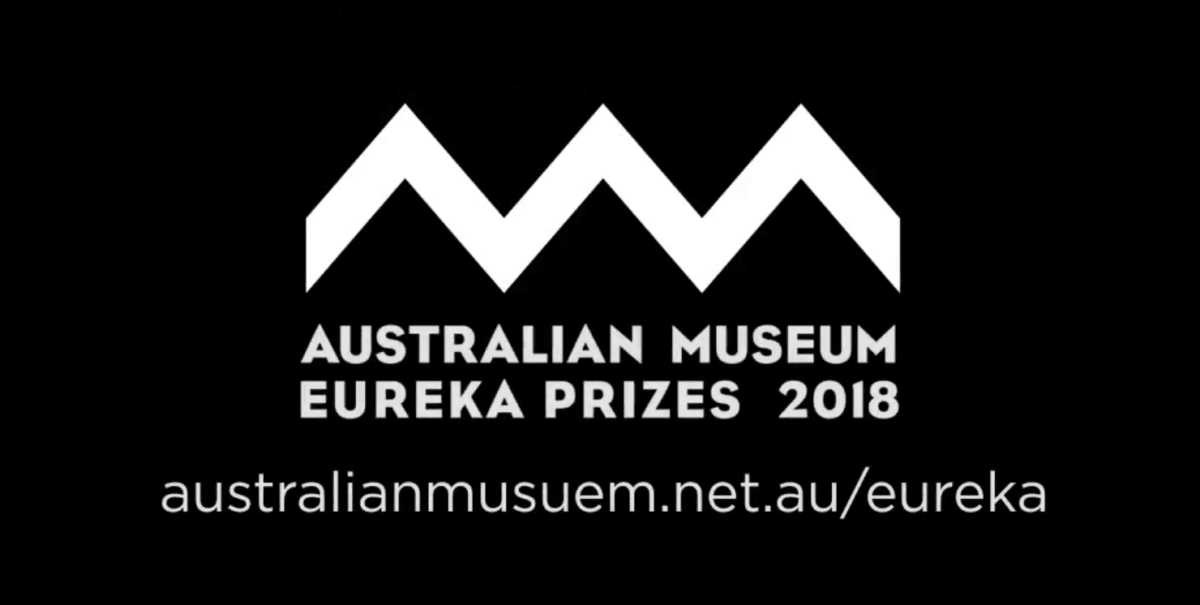Wednesday 25 July, 2018: the 47 finalists of the 2018 Australian Museum Eureka Prizes were released.
Ten researchers from ANU have been nominated as the finalists of five Eureka Prizes – the most nominations the University has ever received.
Established in 1990, the Eureka Prizes are widely regarded as the “Oscars of Australian Science”.
They are presented annually at Sydney Town Hall to reward outstanding Australian scientists for their contributions in the fields of research & innovation, leadership, science engagement, and school science.
Sixteen prizes worth a total of $160,000 will be awarded across the four categories.
Dr. Mohsen Rahmani, from the Nonlinear Physics Centre at ANU, is a finalist for the Macquarie University Eureka Prize for Outstanding Early Career Researcher.
Dr. Rahmani’s project focuses on developing a new class of nano-surfaces that are 500 times thinner than human hair. These surfaces will have a number of applications in night-vision technology, adjustable mirrors & lenses, and ultra-sensitive gas surfaces.
In the past 25 years, advancements in science and technology have doubled in almost all fields. But cameras and eyeglasses today are still using the same technology Galileo used for his telescope 400 years ago. These engineered nano-surfaces will foster the development of smaller optical instruments that are more capable and more efficient.
“Today we are revolutionising the technology of the light-matter interaction, and I am very excited to be a part of this revolution.”
When asked about the challenges he encountered in the project, Dr. Rahmani encouraged students to “never give up” because a strong work ethic will always be rewarded.
“We were stuck in some stages of the experiment without knowing the cause of failure. But it was often the timing when we were so close to making unexpected discoveries about the problem we planned to address.”
Professor Barry Pogson, from the ANU Research School of Biology, is shortlisted for the University of Technology Sydney Eureka Prize for Outstanding Mentor of Young Researchers.
Professor Barry Pogson has been the supervisor of the TIER mentoring program since its introduction in 2007. His vision is to shape agriculture for the benefit of global food security by training students to become researchers and policy makers that will also become mentors themselves to train and inspire others.
“One of my PhD students Estee Tee puts it best – that a supervisor wants you to do good science, a mentor wants you to have a future. My advice for students and early career researchers is to seek out researchers who do both.”
Two groups of ANU researchers, RE100 and the Difficult Bird Research Group have been nominated for the NSW Office of Environment and Heritage Eureka Prize for Environmental Research.
RE100 is comprised of Professor Andrew Blakers, Dr Matthew Stocks, and Bin Liu from the ANU College of Engineering and Computer Science. The team discovered 22,000 sites that are potentially suitable for cost-effective pumped hydro energy storage. These sites have large heads, small dam-lengths, and are close to power lines and roads.
Only about 20 of these sites is needed to generate power through wind and solar photovoltaic (PV) technology and secure 100% renewable electricity. If Australia keeps up with its current build-rate of power plants of wind and solar PV technology with a small increase, 100% of renewable electricity is possible by the late 2020s.
Professor Andrew Blakers sees the complete elimination of gas and coal power as a realistic goal. As the price of building power plants of wind and solar PV technology continues to fall, interests in pumped hydro storage is rapidly rising.
The Difficult Bird Research Group is led by Professor Robert Heinsohn from the Fenner School of Environment and Society. They revealed critical knowledge about the ecology, breeding, habitat needs, and threats to three endangered Tasmanian bird species: Swift parrots, Orange-bellied parrots, and Forty-spotted pardalotes. The group has implemented conservation interventions with success following a crowdfunding campaign that attracted thousands of co-participants.
Professor Michelle Coote, from the ANU Research School of Chemistry, is part of the Invisible Catalyst Team that has been shortlisted for the UNSW Eureka Prize for Scientific Research.
The team discovered that static electricity can be used as a catalyst to manipulate chemical reactions. It may allow greener and safer methods of fabricating plastics and drugs. The team also developed a nanoreactor to detect chemical reactions between only two molecules.
Professor Brad Yu and Professor Brian Anderson, both from the ANU Research School of Engineering, are part of the team Causality shortlisted for the Defence Science and Technology Eureka Prize for Outstanding Science in Safeguarding Australia.
The team has developed a technology to locate the source of radio signals faster and more accurately. It may help to locate explosives, facilitate communication and navigation in environments where GPS is unavailable.
QuestaGame is one of the three finalists for the Department of Industry, Innovation and Science Eureka Prize for Innovation in Citizen Science.
The tech start-up was co-founded by Andrew Robinson who is a visiting scientist at ANU’s Centre of Biodiversity Analysis and David Hynes who is an alumni of ANU. Their gaming app allows players to interact with the nature and provide environmental data for scientific research at the same time.
The winners of the Eureka Prizes will be announced on the evening of Wednesday, 29 August.
We acknowledge the Ngunnawal and Ngambri people, who are the Traditional Custodians of the land on which Woroni, Woroni Radio and Woroni TV are created, edited, published, printed and distributed. We pay our respects to Elders past and present. We acknowledge that the name Woroni was taken from the Wadi Wadi Nation without permission, and we are striving to do better for future reconciliation.
